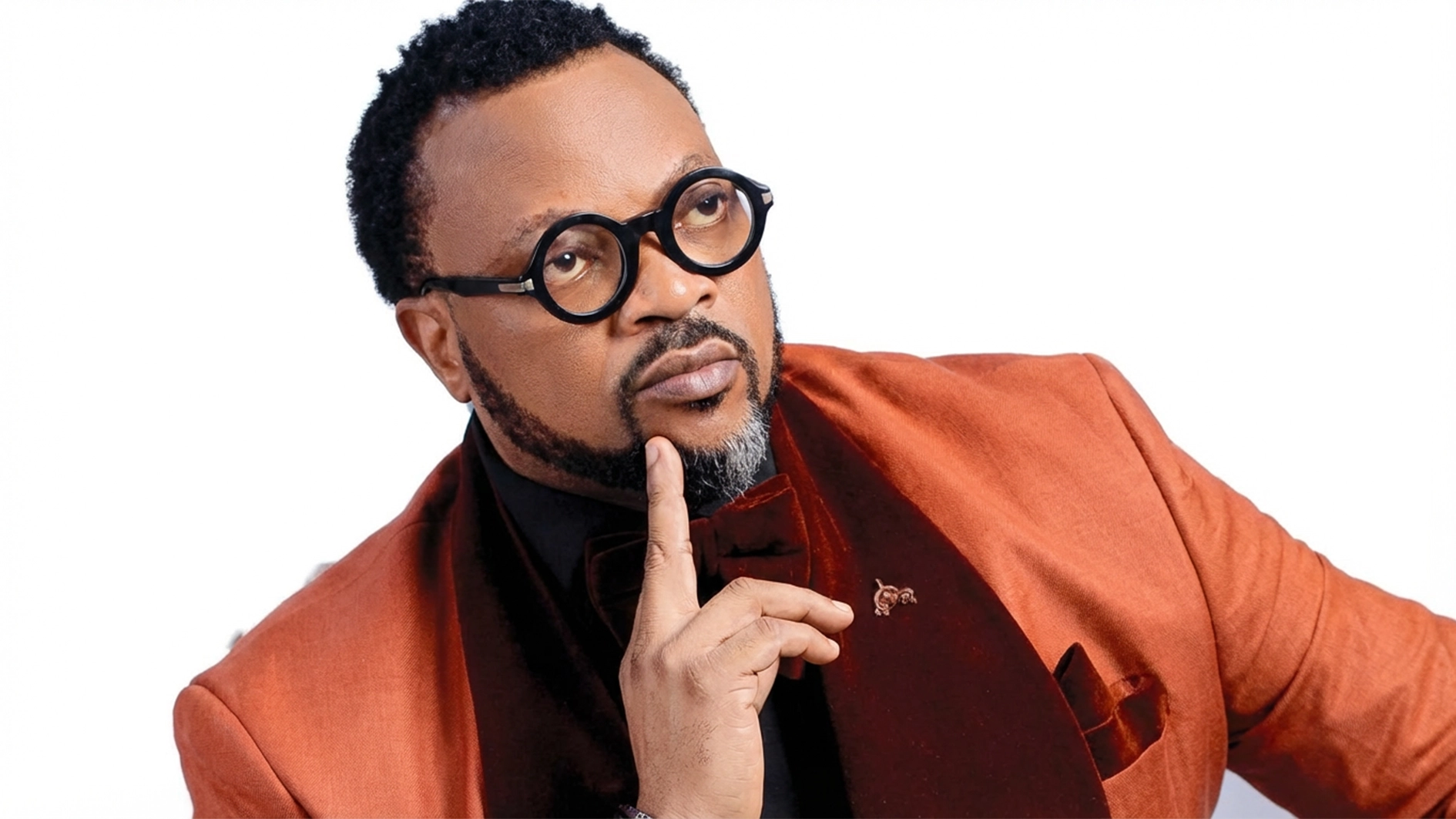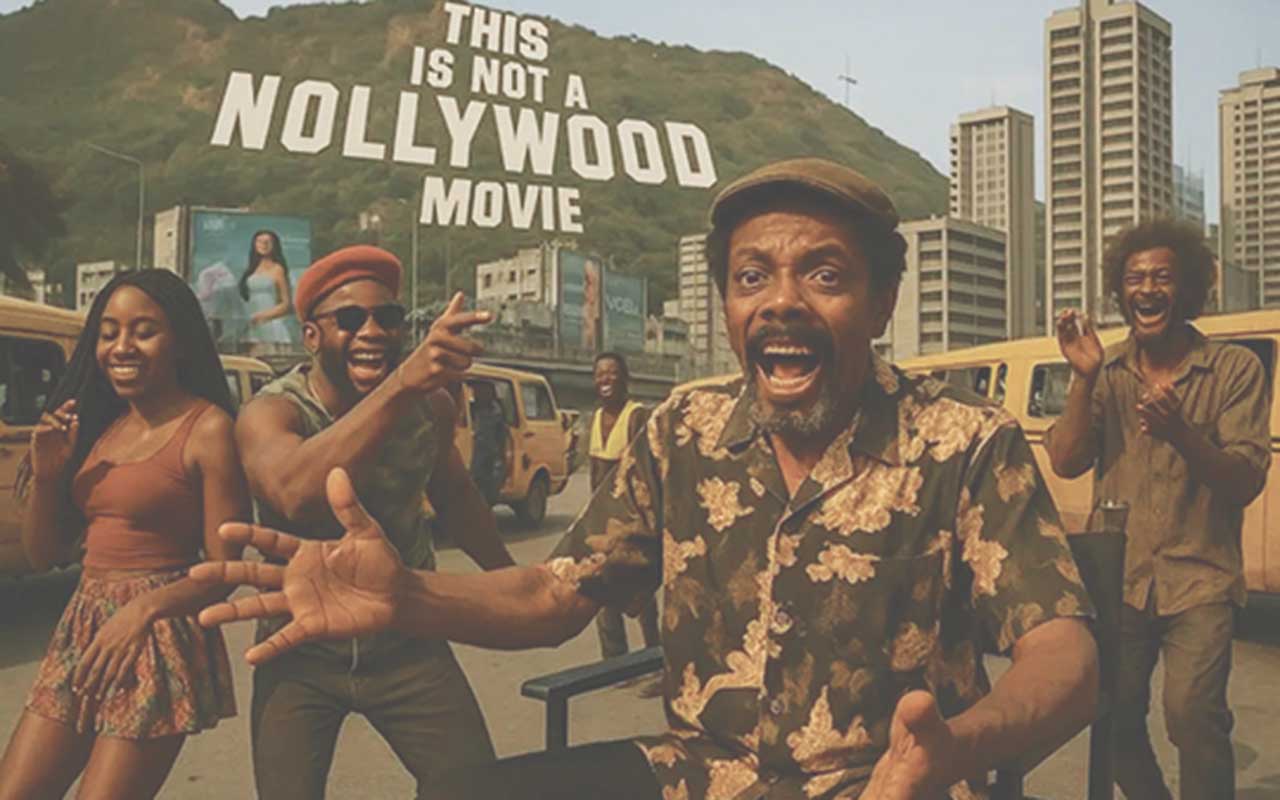In a few weeks, the curtain will rise on Sankara, Jude Idada’s audacious faction of the final 100 hours of Africa’s most uncompromising revolutionary.
The production, produced by Ejirooghene ‘Jyro’ Asagba and directed by Alao ‘Taiyoung’ Toyibb, will take place on September 26 and 27 with five performances scheduled across two days at the Wole Soyinka Theatre, University of Ibadan, to a combined audience of 1,500.
Cast to embody the legendary Burkinabé revolutionary is Babatunde Ojobaro, popularly known as Mister Rain, and amidst all questions the production raises is one: what would it be like to play a man who refused to be played by the world?
Speaking with the production manager, Toluwaleke Owonifaari, he explained why Mister Rain was the natural choice for the role of Captain Thomas Sankara. “We needed someone who has the skill and stature. Someone who could translate Sankara’s ideologies, his charisma, his contradictions; someone who could show us Thomas Sankara, the soldier, the dreamer, and the orator. Mister Rain can do that and more. Casting him wasn’t a decision the director made lightly.”
For those who have followed his trajectory, Mister Rain’s casting seems inevitable. A force in Nigeria’s creative and media ecosystem, his life’s work reads like a manifesto or, daresay, a revolutionary script in itself. Although he studied Marketing at Olabisi Onabanjo University, he soon gravitated toward the performing arts and had early success in dance and comedy there. That was only just the beginning for him, however. It was at the University of Ibadan, where he studied Theatre Arts, that he cemented his place as a luminary in performing arts.
Continuing in the thought process, Toluwaleke affirmed, “This won’t be an ordinary character for him. Mister Rain understands what it means to speak truth to power, to be misunderstood, to lead with vision. He has lived those tensions in his work as a broadcaster, comedian, director, mentor, name it.”
Mister Rain’s career spans multiple arenas and he wears many hats with distinction. He is an award-winning On-Air Personality, digital marketing strategist, content developer, director, PR strategist, and stand-up comedian. He has also served as the Festival Director of Ibadan International Film Festival (2022–2024). Mister Rain has consistently told African stories with theatrical excellence. His directorial work includes Oke Langbodo at the Wole Soyinka Theatre, and he has produced acclaimed stage pieces across Ibadan, Lagos, and university campuses nationwide. On screen, his roles as Uncle Kata in Awon Aladun De and Commander Buruji in Itura (the latter an AMVCA-winning series) have garnered him acclaim for performance and excellence while at it.
Jude Idada’s Sankara is a dense text; one that refuses to romanticise revolution, and prefers instead to probe the fault lines between hope and betrayal, idealism and pragmatism. “The script demands vulnerability and conviction in equal measure,” said Toluwaleke.
Now, coming to Jude Idada’s character of Thomas Sankara, he is described as a “tall, debonair, handsome, principled, brave, incorruptible and visionary thirty-seven-year-old captain of the Burkinabé Army, and Head of State of Burkina Faso.” His big shoes were first filled by Oyewole Sinmiloluwa at the first performance of Sankara. Now, those shoes, seeming even bigger, have been passed on to Mister Rain.
“It’s not an easy character,” Toluwaleke admitted. “The text is demanding. It has many of Sankara’s real speeches and the imagined inner struggles Idada highlights. But Mister Rain is disciplined. I have worked with him before. He will and can do all the intellectual work, the physical work, the emotional work. He won’t be mimicking Sankara, no. He would be interpreting him. He’d be a living, breathing invocation of Thomas Sankara’s revolution.”
Alongside him is Bakari Odama, a 200-level Theatre Arts student at the University of Ibadan, as his double cast. They are joined by an ensemble including, Chukwu Martin (notably seen in the Nigerian TV series Masquerade of Aniedo), Bolu Okunola, Iyanuoluwa Ajibike, Temitope Agoro, Precious Paul, John Oluwadare, Adedotun Awomokun, John Chinedu, Osaremeh Ijebor, Iniore Susan Mamedu, and Ayomide Ayoola. These actors constitute the mainstage and student show casts.
For JJClassics Production, the company behind this staging, Sankara is a continuation of their mission to tell bold African stories. Their past productions have taken audiences from Ghana (The Marriage of Anansewa, 2024) to Liberia (Eclipsed, 2022). This year, they journey to Burkina Faso geographically and philosophically. “We’re telling a Pan-African story,” Toluwaleke noted, “because Sankara’s voice didn’t stop in 1987. His legacy is still seen, or more accurately, should still be seen in the struggles for justice and true liberation.”
On September 26, Sankara will open with three shows: 10:00am and 12:00pm (targeting secondary school students), and a 5:00pm performance for the general public. On the 27, two more shows, 12:00pm (for Lagos train audiences) and 5:00pm, will close the run.
“The school shows are especially important to us,” Toluwaleke explained. “We want young people to see this history. It’s sad that many students may not have even heard of Thomas Sankara. If they won’t read it because history is considered ‘boring,’ we’ll show it to them as entertainment.”
What makes this iteration particularly resonant is how it is now relevant to our current experiences in present-day Nigeria. The same questions Thomas Sankara asked about leadership, corruption, identity, and pan-African solidarity remain unanswered. It is the hope of the production team that this staging presents a mirror with which people see themselves and the country.
Preparations have begun to intensify, so has anticipation. The performance will be scrutinised for dramatic excellence and how truthfully it channels the spirit of a man who, at 37, shook the conscience of a continent. In Toluwaleke’s words, “I once read that freedom is not a gift. It is an earned right. And the currency of freedom is knowledge. That’s what this play is. A kind of currency. We hope people spend it wisely.”
So, in September, when the stage takes us to Burkina Faso, the cast will tell us Captain Thomas Sankara’s story. But it will not only be the Sankara we see; it will be a reflection of ourselves, of what we fight for, and what we allow to die.






